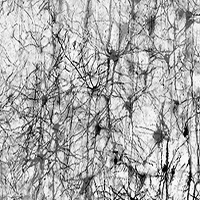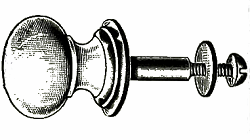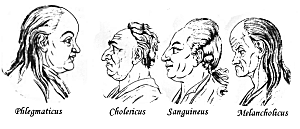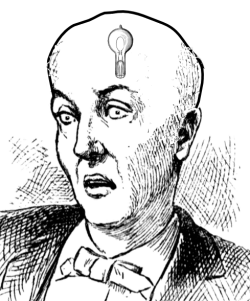 Giulio Tononi’s Phi is an extraordinary book. It’s heavy, and I mean that literally: presumably because of the high quality glossy paper, it is noticeably weighty in the hand; not one I’d want to hold up before my eyes for long without support, though perhaps my wrists have been weakened by habitual Kindle use.
Giulio Tononi’s Phi is an extraordinary book. It’s heavy, and I mean that literally: presumably because of the high quality glossy paper, it is noticeably weighty in the hand; not one I’d want to hold up before my eyes for long without support, though perhaps my wrists have been weakened by habitual Kindle use.
That glossy paper is there for the vast number of sumptuous pictures with which the book is crammed; mainly great works of art, but also scientific scans and diagrams (towards the end a Pollock-style painting and a Golgi-Cox image of real neurons are amusingly juxtaposed: you really can barely tell which is which). What is going on with all this stuff?
My theory is that the book reflects a taste conditioned by internet use. The culture of the World Wide Web is quotational and referential: it favours links to good stuff and instant impact. In putting together a blog authors tend to gather striking bits and pieces rather the way a bower bird picks up brightly coloured objects to enhance its display ground, without worrying too much about coherence or context. (If we were pessimistic we might take this as a sign that our culture, like classical Greek culture before it, is moving away from the era of original thought into an age of encyclopedists; myself I’m not that gloomy – I think that however frothy the Internet may get in places it’s all extra and mostly beneficial.) Anyway, that’s a bit what this book is like; a site decorated with tons of ‘good stuff’ trawled up from all over, and in that slightly uncomplimentary sense it’s very modern.
You may have guessed that I’m not sure I like this magpie approach. The pictures are forced into a new context unrelated to what the original artist had in mind, one in which they jostle for space, and many are edited or changed, sometimes rather crudely (I know: I should talk, when it comes to crude editing of borrowed images – but there we are). The choice of image skews towards serious art (no cartoons here) and towards the erotic, scary, or grotesque. Poor Maddalena Svenuta gets tipped on her back, perhaps to emphasise the sexual overtones of the painting – although they are unignorable enough in the original orientation. This may seem to suggest a certain lack of respect for sources and certainly produces a rather indigestible result; but perhaps we ought to cut Tononi a bit of slack. The overflowing cornucopia of images seems to reflect his honest excitement and enthusiasm: he may, who knows, be pioneering a new form which we need time to get used to; and like an over-stuffed blog, the overwhelming gallimaufry is likely here and there to introduce any reader to new things worth knowing about. Besides the images the text itself is crammed with disguised quotes and allusions. Prepare to be shocked: there is no index.
I’m late to the party here. Gary Williams has made some sharp-eyed observations on the implicit panpsychism of Tononi’s views; Scott Bakker rather liked the book and the way some parts of Tononi’s theory chimed with his own Blind Brain theory (more on that another time, btw). Scott, however, raised a ‘quibble’ about sexism: I think he must have in mind this hair-raising sentence in the notes to Chapter 29:
At the end, Emily Dickinson saves the day with one of those pronouncements that show how poets (or women) have deeper intuition of what is real than scientists (or men) ever might: internal difference, where all the meanings are.
Ouch, indeed: but I don’t think this is meant to be Tononi speaking.
The book is arranged to resemble Dante’s Divine Comedy in a loose way: Galileo is presented as the main character, being led through dreamlike but enlightening encounters in three main Parts, which in this case present in turn, more or less, the facts about brain and mind – the evidence, the theory of Phi, and the implications. Galileo has a different guide in each Part: first someone who is more or less Francis Crick, then someone who is more or less Alan Turing, and finally for reasons I couldn’t really fathom, someone who is more or less Charles Darwin (a bit of an English selection, as the notes point out); typically each chapter involves an encounter with some notable personality in the midst of an illuminating experience or experiment; quite often, as Tononi frankly explains, one that probably did not feature in their real lives. Each chapter ends with notes that set out the source of images and quotations and give warnings about any alterations: the notes also criticise the chapter, its presentation, and the attitudes of the personalities involved, often accusing them of arrogance and taking a very negative view of the presumed author’s choices. I presume the note writer is, as it were, a sock puppet, and I suppose this provides an entertaining way for Tononi to voice the reservations he feels about the main text, backing up the dialogues within that text with a kind of one-sided meta-textual critique.
Dialogue is a long-established format for philosophy and has certain definite advantages: in particular it allows an author to set out different cases with full vigour without a lot of circumlocution and potential confusion. I think on the whole it works here, though I must admit some reservation about having Galileo put into the role of the naive explorer. I sort of revere Galileo as a man whose powers of observation and analysis were truly extraordinary, and personally I wouldn’t dare put words into his mouth, let alone thoughts into his head: I’d have preferred someone else: perhaps a fictional Lemuel Gulliver figure. It makes it worse that while other characters have their names lightly disguised (which I take to be in part a graceful acknowledgement that they are really figments of Tononi) Galileo is plain Galileo.
Why has Tononi produced such an unusual book? Isn’t there a danger that this will actually cause his Integrated Information Theory to be taken less seriously in some quarters? I think to Tononi the theory is both exciting and illuminating, with the widest of implications, and that’s what he wants to share with us. At times I’m afraid that enthusiasm and the torrent of one damn thing after another became wearing for me and made the book harder to read: but in general it cannot help but be engaging.
The theory, moreover, has a lot of good qualities. We’ve discussed it before: in essence Tononi suggests that consciousness arises where sufficient information is integrated. Even a small amount may yield a spark of awareness, but the more we integrate, the greater the level of consciousness. Integrated potential is as important as integrated activity: the fact that darkness is not blue and not loud and not sweet-tasting makes it, for us, a far more complex thing that it could ever be to an entity that lacked the capacity for those perceptions. It’s this role of absent or subliminal qualities that make qualia seem so ineffable.
This makes more sense than some theories I’ve read but for me it’s still somewhat problematic. I’m unclear about the status of the ‘information’ we’re integrating and I don’t really understand what the integration amounts to, either. Tononi starts out with information in the unobjectionable sense defined by Shannon, but he seems to want it to do things that Shannon was clear it couldn’t. He talks about information having meaning when seen from the inside, but what’s this inside and how did it get there? He says that when a lot of information is aggregated it generates new information – hard to resist the idea that in the guise of ‘new information’ he is smuggling in a meaningfulness that Shannonian information simply doesn’t have. The suggestion that inactive bits of the system may be making important contributions just seems to make it worse. It’s one thing for some neural activity to be subliminal or outside the zone of consciousness: it’s quite different for neurons that don’t fire to be contributing to experience. What’s the functional difference between neurons that don’t fire and those that don’t exist? Is it about the possibility that the existing ones could have fired? I don’t even want to think about the problems that raises.
I don’t like the idea of qualia space, another of Tononi’s concepts, either. As Dennett nearly said, what qualia space? To have an orderly space of this kind you must be able to reduce the phenomenon in question to a set of numerical variables which can be plotted along axes. Nobody can do this with qualia; nobody knows if it is even possible in principle. When Wundt and his successors set out to map the basic units of subjective experience, they failed to reach agreement, as Tononi mentions. As an aspiration qualia space might be reasonable, but you cannot just assume it’s OK, and doing so raises a fear that Tononi has unconsciously slipped from thinking about real qualia to thinking about sense-data or some other tractable proxy. People do that a lot, I’m afraid.
One implication of the theory which I don’t much like is the sliding scale of consciousness it provides. If the level of consciousness relates to the quantity of information integrated, then it is infinitely variable, from the extremely dim awareness of a photodiode up through flatworms to birds, humans and – why not – to hypothetical beings whose consciousness far exceeds our own. Without denying that consciousness can be clear or dim, I prefer to think that in certain important respects there are plateaux: that for moral purposes, in particular, enough is enough. A certain level of consciousness is necessary for the awareness of pain, but being twice as bright doesn’t make my feelings twice as great. I need a certain level of consciousness to be responsible for my own actions, but having a more massive brain doesn’t thereafter make me more responsible. Not, of course, that Tononi is saying that, exactly: but if super-brained aliens land one day and tell us that their massive information capacity means their interests take precedence over ours, I hope Tononi isn’t World President.
All that said, I ought to concede that in broad terms I think it’s quite likely Tononi is right: it probably is the integration of information that gives rise to consciousness. We just need more clarity about how – and about what that actually means.
 You can’t build experience out of mere information. Not, at any rate, the way the Integrated Information Theory (IIT) seeks to do it. So says Garrett Mindt in a forthcoming paper for the JCS.
You can’t build experience out of mere information. Not, at any rate, the way the Integrated Information Theory (IIT) seeks to do it. So says Garrett Mindt in a forthcoming paper for the JCS.
 ‘…stupid as a doorknob…’ Just part of Luboš Motl’s vigorous
‘…stupid as a doorknob…’ Just part of Luboš Motl’s vigorous  Worse than wrong? A trenchant
Worse than wrong? A trenchant 
